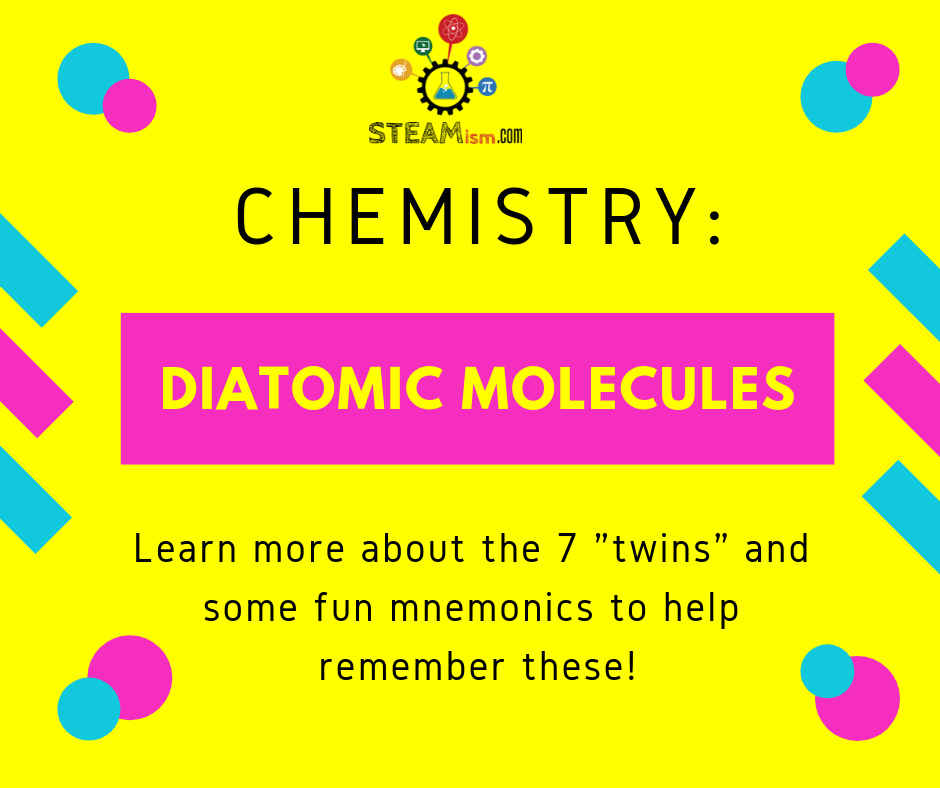What are diatomic molecules?
We know there are more than 100 elements in the Periodic Table.
Of these, there are seven (7) non-metal elements that exist as molecules made up of two atoms joined together. These are called “diatomic molecular elements”.
Diatomic Molecules in the Periodic Table
But, why are these special?
Simple. We never find a single atom of these seven on their own. They are twins and only stable when paired next to their twin, connected to form a molecule.
Another good one I heard – think of these as the hip-hop stars of the Periodic Table – the “Tupacs.” Get it? 😎 No? Just me, then? 😏
How do we display diatomic molecules?
As elements by themselves, meaning when they are not part of a compound, but are all by themselves, there always has to be a subscript 2 behind them. So for example, Oxygen is O2 and Iodine is I2.
List of 7 Diatomic Molecules
And 🥁 drumroll 🥁…the seven twins are:
- iodine, I2
- bromine, Br2
- chlorine, Cl2
- fluorine, F2
- oxygen, O2
- nitrogen, N2
- hydrogen, H2
Mnemonics:
Did I tell you that this is an important list? I like to use a few different mnemonics or memory tricks to remember these elements, including:
- Brinclhof = Br(omium)~I(odine)~N(itrogen)~C(h)l(orine)~H(ydrogen)~O(xygen)~F(lourine)
My sister complains that the “Cl” is confusing for her (many call it Brinklehof, which may just be even more confusing, right?). I like it because it’s the easiest to remember. Say it with me – Brinclhof, Brinclhof, Brinclhof….✨✨✨
2. There are many others related to beer (this is a FAMILY FRIENDLY blog!) and needy classes (a STEAM blog!) but this one may make your life easier:
I Have No Bright Or Clever Friends
SO not true! I have some amazingly bright and clever friends 👦 👧 🧑. Actually that’s what makes this easy to remember, because it’s not true at all!
So there you are – memorize your mnemonics or memorize the list and you’ve learnt an important little bit of chemistry!
- An Interview with the Co-Founders of Dermanostix - August 14, 2020
- NASA & SpaceX’s Successful Space Launch - June 12, 2020
- Types of Engineering - June 10, 2020
